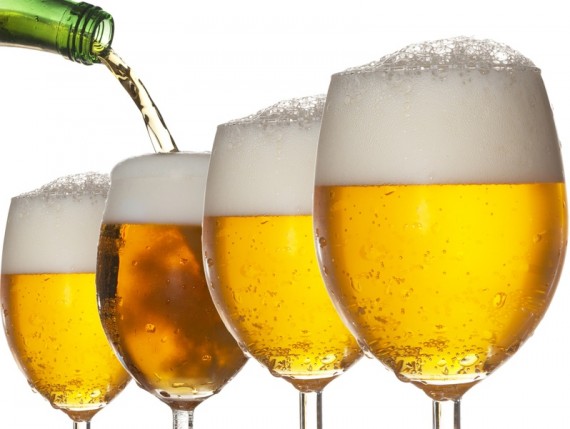Beer Led To The Rise Of Civilization?
A new study suggests that the brewing of beer and other alcoholic beverages contributed significantly to the rise of civilization:
May beer have helped lead to the rise of civilization? It’s a possibility, some archaeologists say.
Their argument is that Stone Age farmers were domesticating cereals not so much to fill their stomachs but to lighten their heads, by turning the grains into beer. That has been their take for more than 50 years, and now one archaeologist says the evidence is getting stronger.
Signs that people went to great lengths to obtain grains despite the hard work needed to make them edible, plus the knowledge that feasts were important community-building gatherings, support the idea that cereal grains were being turned into beer, said archaeologist Brian Hayden at Simon Fraser University in Canada.
“Beer is sacred stuff in most traditional societies,” said Hayden, who is planning to submit research on the origins of beer to the journal Current Anthropology.
The advent of agriculture began in the Neolithic Period of the Stone Age about 11,500 years ago. Once-nomadic groups of people had settled down and were coming into contact with each other more often, spurring the establishment of more complex social customs that set the foundation of more-intricate communities.
The Neolithic peoples living in the large area of Southwest Asia called the Levant developed from the Natufian culture, pioneers in the use of wild cereals, which would evolve into true farming and more settled behavior. The most obvious explanation for such cultivation is that it was done in order to eat.
Archaeological evidence suggests that until the Neolithic, cereals such as barley and rice constituted only a minor element of diets, most likely because they require so much labor to get anything edible from them — one typically has to gather, winnow, husk and grind them, all very time-consuming tasks.
(…)
Sites in Syria suggest that people nevertheless went to unusual lengths at times just to procure cereal grains — up to 40 to 60 miles (60 to 100 km). One might speculate, Hayden said, that the labor associated with grains could have made them attractive in feasts in which guests would be offered foods that were difficult or expensive to prepare, and beer could have been a key reason to procure the grains used to make them.
(…)
The brewing of alcohol seems to have been a very early development linked with initial domestication, seen during Neolithic times in China, the Sudan, the first pottery in Greece and possibly with the first use of maize. Hayden said circumstantial evidence for brewing has been seen in the Natufian, in that all the technology needed to make it is there — cultivated yeast, grindstones, vessels for brewing and fire-cracked rocks as signs of the heating needed to prepare the mash.
Beer. Is there anything it can’t do ?







Not a particularly new idea—it’s been floating around for at least the last 20 years.
Another significant piece of data which doesn’t seem to appear in the original article which supports the idea that brewing contributed substantially to civilization (in the technical sense) is that it can’t be done without adopting a sedentary habit. Migratory hunter-gathers can make pots, gather and process grains, and so on. But it’s far harder for them to sit around waiting for things to develop. That really requires a fixed place of abode.
Dave,
Just what I was going to write. I thought this idea had been around for awhile.
I’ll add a little bit to it.
The first evidence of intentionally made alcohol was found in Asia. Humans would chew rice and spit it into pots. The bacteria, water content, and grain would slowly brew into alcohol. Not only did alcohol cause the end the hunter-gatherer period, but it immediately created the first pub.
Nope. Aside from getting drunk, beer consumption is also useful for drinking when the local water supply is rather dubious in cleanliness, and even for nutrition in a tight spot (beer has calories).